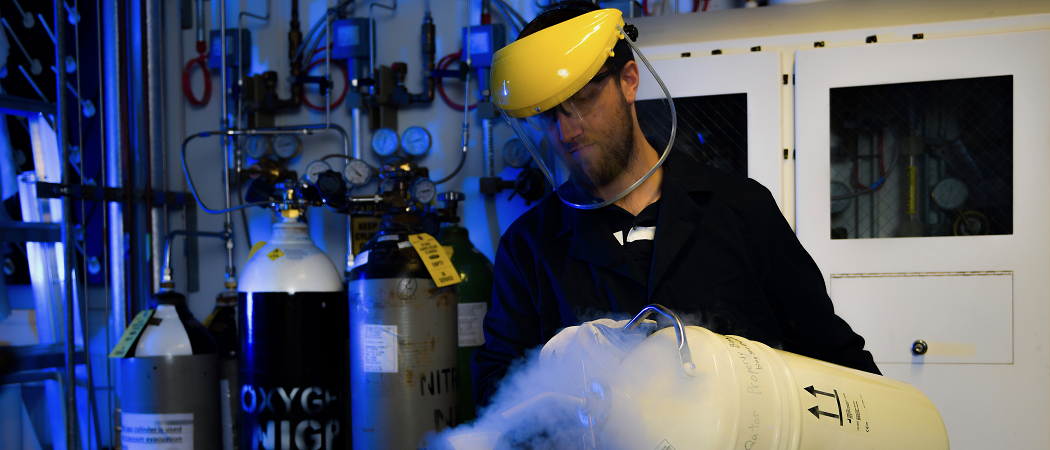From Science|Business Partner Al-Fanar Media: The Arab region already lagged in government spending on research. Now, with oil prices in decline and Covid-19 taking hold, spending levels could fall further

A worker at Texas A&M University at Qatar, which is one of several that receive funding from the Qatar National Research Fund. When the coronavirus hit, the engineering campus redirected around a quarter of its funding to the crisis. Photo: Courtesy of Texas A&M University at Qatar.
This article was published by Al-Fanar Media, a not for profit publication dedicated to covering Arab education, research, and culture, and a publication partner of Science|Business. Read the full article here.
In the wake of a drop in the price of oil and the economic pain inflicted by Covid-19 lockdowns, research in Arab countries is due for an economic hit in the coming year.
On the positive side, scientists and science administrators think that slimmer funding may encourage more collaboration. They also see some universities establishing innovation funds around Covid-19 and hope that the pandemic will help the general public to see the value of scientific and medical research in the region.
Some areas, like health care and research relating to Covid-19, may benefit from the global pandemic. But in general, the virus’s impact on academic research looks to be vast and could linger for years to come.
Research and development are critical to any economy’s growth, yet across the Arab world—even in the wealthier Gulf Cooperation Council countries—government support for research lags below the levels seen in other countries with strong research outputs.
According to the World Bank, Arab countries spent, on average, just 0.5 to 1 percent of gross domestic product on research and development in 2018, the latest year for which figures are available. This stands in stark contrast with neighboring Israel, which spent 4.9 percent of GDP on research that year, the highest proportion of any developed country. Austria and Germany each devoted more than 3 percent of GDP to research, the highest shares in Europe. In the United Arab Emirates, the leader among Arab countries, the figure was only 1.3 percent.
Tougher Times Ahead
Now, according to experts, the region could be set for a fall.
In the oil-dependent Gulf states, the pressure on government spending as a result of the pandemic and lower oil prices will continue to restrain investment in research, says Sally Jeffery, global education network leader at the professional services firm PwC Middle East.
Governments may hope the private sector can spend more on research, says Jeffery, “and some of the larger companies, such as oil and gas, might.” But in general, she thinks research spending “will be depressed, at least until the economy rebounds and GDP moves back into positive growth.”
Hassan Bazzi, associate dean for research and advancement at Texas A&M University at Qatar, agrees that there could be tougher times ahead.





 A unique international forum for public research organisations and companies to connect their external engagement with strategic interests around their R&D system.
A unique international forum for public research organisations and companies to connect their external engagement with strategic interests around their R&D system.